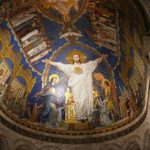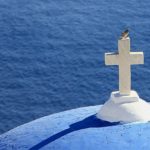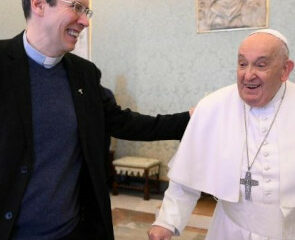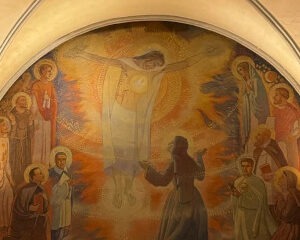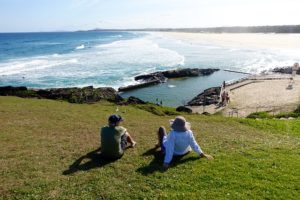 the major importance of Laudato SI
the major importance of Laudato SI
Laudato si(24 May 2015) is a major step in thesocial teaching of the Church
.
Why is it so?
-
First of all, this text responds to a major problem of our time. We are going to destroy our world, our future, if we do not change our economic model based on perpetual growth. This is becoming obvious to everyone apart from the climate sceptics.
-
Secondly, this encyclical shows us a practicable path that can humanise each person and take into account the future of the planet and future generations. There is thus a long-term view for the good of all human beings without exception.
-
Thirdly, this text is addressed to all men of good will, in fidelity to the spirit of the Second Vatican Council, to Gaudium et Spes. The Church wants to bear witness to a good God who wants the life and happiness of all human beings and who calls everyone to contribute to this.
 Find out about our Life Project&
Find out about our Life Project&
-
Fourthly, with this encyclical, Pope Francis proposes to everyone :
– to live a universal brotherhood that includes all creatures created by God. It is based on the spirituality of Saint Francis of Assisi. This lived brotherhood brings man into a network of benevolent relationships with the whole cosmos, with everything and everyone. It leads to the recognition of the interdependence of man with his environment and vice versa.
– to rethink the notion of “progress” by focusing on an increase in the quality of life, especially for the poorest. The accumulation of goods and frenetic consumption are not synonymous with “progress”.
-
Fifth, for Christians, Pope Francis shows the link between this integral ecology and our faith in God. And this is where I would like to show how our SVECJ life project helps us to be close to this integral ecology or conversely how this integral ecology can help us to deepen our spirituality
Integral ecology and Christian spirituality
There is a close link between integral ecology and Christian spirituality. Pope Francis shows us that being a Christian helps us in three ways: to admire creation; to respect creation in action; and to become consistent between our faith convictions and our lifestyle.
-
Admire creation because it has been given to us by God as a free gift. This admiration makes us give thanks to God. It protects us from the temptation of possession and domination. Admiration leads us to contemplation. Entering into an integral ecology therefore presupposes a contemplative attitude, but it can also be said to develop it. All those who have an ecological fibre learn to look and admire. Those who have a contemplative spirituality, as in our SVECJ family, learn to admire this creation offered by God with all that lives in it..
Laudato Si no. 84: “(…) The whole material universe is a language of love of God’s love, of his excessive tenderness towards us”. “When we become aware of the reflection of God in all that exists, the heart experiences the desire to adore God for and with all his creatures, as expressed in the beautiful hymn of St. Francis of Assisi (…)” (no. 87).
Life Project No. 29: “God’s love, ever present in human history, creates us every day. Through prayer we expose our whole being to this love. We receive ourselves from him and “seek him in everything” (St. Ignatius). Like Jesus, we put contemplation at the heart of our life. In this quotation, God’s love is seen primarily in human history. However, by mentioning Jesus we also take into account his way of looking at his environment and drawing from it a real teaching which is found particularly in his parables.
-
Respecting all of creation through concrete actions. This means promoting the preservation of the biodiversity of plants and animals. It also invites us to promote the diversity of our human groups with their cultures. This respect is active, it implies a profound change in the way we consume and live together. It is a personal conversion while knowing that we can influence economic, agricultural and technological policies together..
Laudato Si n°206 “A change in lifestyles could succeed in exerting healthy pressure on those who hold political, economic and social power”.
Laudato Si n°223: “Sobriety, which is lived with freedom and in a conscious manner, is liberating. It is not less life (…) but quite the opposite (….). One can live intensely with little, especially when one is able to appreciate other pleasures and find satisfaction in fraternal encounters, in service, in the deployment of one’s charisms, in music and art, in contact with nature, in prayer.”
This change of lifestyle is promoted in SVECJ especially in the call to poverty and availability.
Life Project n°44: “Following Christ, we humbly make the choice of poverty and we want to renounce any form of domination, any spirit of possession. We accept to question the cultural, family and professional conditioning that would be an obstacle to communion and sharing. This renunciation and detachment, lived in joy and for a greater love, frees us from our burdens and fears. We can taste the true freedom of the heart and reach out in humanity to the most needy.
- To become more and more coherent between our faith and our lifestyle. We know that this coherence is necessary to become credible witnesses. We also know that it is difficult to achieve this consistency in all areas of our lives. We can be very careful in what we eat but not at all in our modes of transport; or more seriously, be very indifferent to our brothers and sisters excluded from the economic system! We can share with our loved ones and forget about the rest of the world. Lack of coherence leaves dissatisfaction, whereas coherence leads to peace and inner joy. What we experience here on a personal level is reproduced on a global scale. It is urgent to work towards greater coherence in global policies in order to make progress on the environmental and societal levels.
Laudato si N°91: “The feeling of intimate union with other beings in nature cannot be real if at the same time there is no tenderness, compassion and concern for other human beings in the heart. The incoherence is evident in someone who fights against the trafficking of animals that are on the verge of extinction, but who remains completely indifferent to the trafficking of people, and is uninterested in the poor (…)”
No. 139 (end): “There are not two separate crises, one environmental and one social, but one complex socio-environmental crisis”.
Life Project n° 52 and 53: “In a world that is often indifferent or alien to the Gospel, we must be concerned, by our behaviour and our words, to be a sign of God’s infinite tenderness and to be artisans of peace”; “We want to foster solidarity among people, to participate in the construction of a more human world, based on true and disinterested relationships. We will rejoice in the efforts of peace and cordiality that animate the world, challenge individualistic behaviour and implement concrete and personal forms of fraternity
Conclusion
With Pierre de Clorivière and Daniel Fontaine we have developed a deeply contemplative and social spirituality. These accents are found in our SVECJ Life Project and make us close to and receptive to the encyclical Laudato Si
. This is an opportunity and a responsibility. It is an opportunity because this call of the Pope nourishes us and does us good; it is a responsibility because we have to promote this integral ecology where we are, in our own life contexts.
Gwennola Rimbaut – SVECJ

